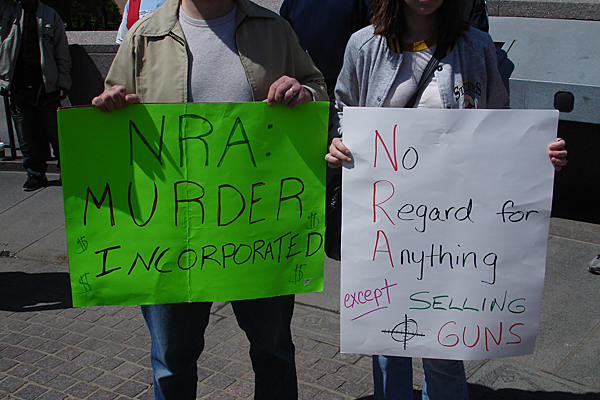As the Philadelphia Daily News was headed to print with the headline “Kill-adelphia: Yet again, city tops list of homicide rates,” they missed another homicide for their report. As I told Wyatt in response to that tweet, the city’s leaders think he’s using fuzzy math for considering year-over-year numbers. They only count from the very highest number and consider all numbers below it to be an improvement. Even as murder is on the rise, they use a “method” of counting that considers it down by double digits. The problem is that no one believes them, but the city voters aren’t willing to hold anyone accountable.
But John Coleman, shopping at the Uceta market yesterday, wasn’t buying the spin.
“They lyin’,” said Coleman, 25.
They use every excuse under the sun. You can’t track trends with year-over-year data. (Really? Yet, using the absolute worst year is a method for tracking long-term trends?) The city’s leadership says that the numbers aren’t accurate because they actually include every homicide, and they don’t think all of them count. Which ones don’t count?
“We’ve been pretty much flat for about two years, if you take the Gosnell numbers out,” said Everett Gillison, deputy mayor for public safety, who spoke for the Nutter administration.
What are “the Gosnell numbers” that shouldn’t count? That would be the doctor who murdered seven babies & one woman.
Of course, even though shootings are down, the lack of extreme gun control in the rest of the state is to blame, according to the head of the Philadelphia Police Department. The mayor’s spokesman says that the economy is to blame, as does a social worker interviewed in the article. It’s easier to blame everyone else for a city that chooses to do nothing to stop the culture of violence.
Promises are made by the city’s current leaders, but no one cares enough to hold them accountable.
Mayor Nutter, at a debate during his 2007 campaign, pledged that he wouldn’t seek re-election if the 2010 homicide tally was more than the 288 killed in 2002. Then at his inauguration in January 2008, he set what turned out to be an overly ambitious goal of slashing the city’s murder rate by 30 to 50 percent in three to five years. He won re-election this year.
He didn’t meet a single one of those promises, but there was never any doubt as to his chances to hold office this year. I think it speaks volumes that in the picture for the article that only two people in the crowd look upset at the body covered just a few feet from them. I think far too many residents in that city have simply decided to accept this level of crime as a way of life.


When it comes to statistics I am actually pretty sympathetic to local schools in places like Philly, Baltimore, South Chicago & similar war zones where teachers and principals are held accountable for comparatively mundane things like scores on standardized tests when their students’ primary concern is not ending up face down in a alley on the way to or from class. Why on earth people even try to have a school in a place where martial law should have been declared decades ago is beyond me. I guess the insanity of the situation is not noticed by those in the soup, like the proverbial frog that doesn’t notice the water heating up. There are a number of contributing social factors, many made worse by the government, e.g. the War on Drugs, but the reality is we have pockets in this country where any objective assessment has to conclude there’s been a complete and total collapse of civil society. Unfortunately, the only thing anybody seems willing to do about it is to practice denial, to throw money at it (mostly without accounting, let alone accountability), to implement a subtle “neo-segregationist” (if you will) containment policy or a combination of the three. Nobody is well served by this, least of the all people living under the threat of death by violence at any moment. It’s the denial that mostly stops anything from being done.
For many people, they have lived their whole lives in a dense urban area, with their job and any stores they need relatively close by. So many really don’t know what it’s like outside and that life in the city isn’t the way things should be. I’m ever thankful I didn’t have to grow up in one, I don’t know what kind of an effect that would have had on me growing up.
My mother had grown up in Yonkers and had eventually moved to the suburbs by her teens. The differences she described between the two were like night and day.